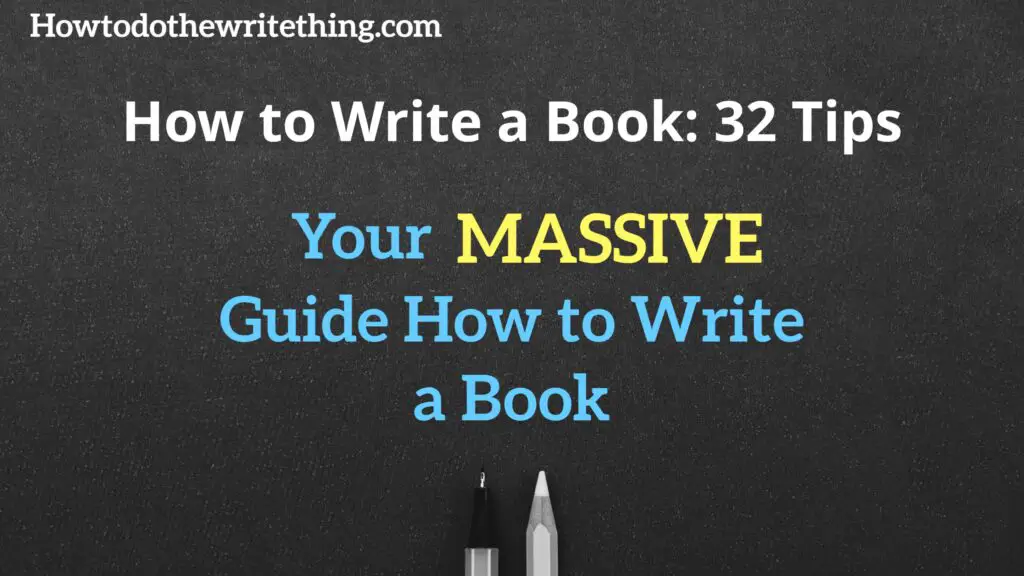
How to Write a Book: 32 Tips | Your MASSIVE Guide How to Write a Book
We didn’t want you to have to scrape the internet for ALL the professional advice out there on how to write a book so we did it for you and compressed it into this massive guide for you to use and enjoy forever!
Okay…maybe not forever but at least long enough to start and FINISH your book.
The easy part is starting your book. But we all know that the hardest part is finishing the darn little thing.
So if you really want to know what the professionals are saying you can find some of that advice conveniently for you right here.
With 6000+ words and 32 tips, be sure to save this resource to your favorites so you can reference back to it anytime you want because it would be difficult to take in all at once.
Find Your Writer’s Mindset
It can be easy to think stuff like, “I’m not good enough.” “No one will read this.” “How can I compete with them?”
Self-doubt is a hideous beast and it preys on all that would venture outside of themselves to try to do anything more than exist in life.
“Imposter’s Syndrome.” Self doubt.” Call it whatever you want but you have to fight against it.
Just think if Stephen King, Rowling, Lewis, or Tolkien thought this way and ended up not writing anything at all. How sad would that be?
To think that you could predict the future that your book wouldn’t be good is quite the ability.
Instead find your writer’s mindset.
“Amateurs wait for inspiration. Professionals get to work.” – Stephen King.
Finding your writer’s mindset means finding the motivation and space to do what needs to be done to get the book done and written. Thinking things like, “I’m not good enough.” And quitting isn’t going to help you.
But sitting down and writing to get the work done will.
Don’t think that something magical will just flow forth. It is work and it takes much time and discipline.
Use these tips to help you create a discipline, get to work, and get the job done.
A good action to help at this point would be to study the way professions like Mr. King manage their writing schedule. You will find fun facts like that in this resource.
Starting Your Book
Come up with your book idea
So you’re here. You are at the start of your book adventure and you are sitting at your workstation ready to write down every word.
No?
Are you in your notebook jotting down story ideas?
Are you thinking about your characters as you ride the subway?
Are you on your way to work, but in your mind you are having a conversation with your antagonist about why what they’re doing is unacceptable behavior?
That’s the funny thing about starting a book huh?
There really are a million and one places you could be right now.
What’s The Big Idea?!
It must be said that today’s book market is EXTREMELY competitive. You need to choose a book idea that people are going to like.
Look at what is doing well. Decide on a genre that you personally enjoy and are passionate about. Pick one that you know well and have read and seen a lot of stories about.
It’s important that you enjoy it a little because it is a giant undertaking to conquer your first book. It’s tough to finish and it’ll be even harder to finish if you really don’t care about it at all.
Take your ideas and write every one of them down. See which ones you can’t stop thinking about. Which ideas do you get excited about weeks to months to years later. Write everything down.
Run the idea that stands out to you the most past friends and family that enjoy that genre as well. When you start to see a repeating pattern of good feedback you can feel a little safer that it’s a good idea.
Write a short story about it and have some people read the short story to see if it is interesting.
Don’t try to have your friends that aren’t readers read your stuff. It won’t be good feedback for you.
But some of the best advice would be to make sure that you enjoy the story and want to see it through.
Just because the book doesn’t blow up right away doesn’t mean it wasn’t a success.
The Game of Throne books were written in the 90’s and only recently blew up. They had a following back then but only recently did they become really really big.
If you love it and others seem to be on board, write it anyway. It may not be the best book in the world but it may show you how much you enjoy writing novels and lead to many other great books. You will never know if you don’t write it.
Start Somewhere
Martin actually claims that he was in the middle of a completely different story when his first Idea for Game of Thrones came to him.
He said it was so real and vivid to him that he had to write it. It was only a scene. “They found the direwolf pups in the summer snows.”
It was from this one sentence that the entire series flowed out of.
Rowling took a train to London after being out hunting for flats. She said the idea for Harry dropped into her head. She didn’t have a pen to write anything down, but she said for the next 4 hours she let her imagination run wild with all the ideas for the book.
She said that night she started writing the Philosopher’s Stone.
You don’t know when or where your idea is going to come from, so just start somewhere and let it grow.
And what might be some important advice:
- Don’t worry about it being perfect at first. That’s why you go back and edit once it’s all out.
- Don’t procrastinate. Just get it done.
- Don’t hold back ideas at first, just keep getting the story down.
Research
- How long are books in your genre?
- How many chapters?
- How many pages?
- Look on Amazon Best Sellers to see what people are into right now.
- What are looking up and reading that will help you write?
- Have you read enough about your subject matter to have something to say about it?
Who will read your book?
What demographic of people will be the target market of your book?
J.K. Rowling wrote her books targeting teenagers and young adults reading for fun.
Who will you be writing for? Will it make sense to them? Will they enjoy it?
Here is an activity to help define your books audience.
Take a moment and think about finishing these sentences:
My book helps…
My book entertains…
My book helps…see that they need to…
My book teaches…to…
My book teaches…about…
My book won’t help…
My book will mostly be enjoyed by…because…
Even just thinking about these ideas can help you narrow things down.
Neil Gaiman on starting a book
I listened to Neil Gaiman teach about starting a book and here is some advice he gave. (These will be paraphrased, not quotes, and with some of my conjecture.)
- Before you even start thinking about big novels you should be making short stories.
- We should be making short stories all the time.
- We should have a notebook that is just short stories or story ideas.
- Any time a story idea comes to mind we should IMMEDIATELY write it down somewhere. (Write it down on your hand or a napkin if you have to and transfer it later!)
- He mentioned that these short stories, if important, will stick around in your mind and become something more.
Neil is big on short stories, because he will tell you that most of his novels and movies started as short stories that he later expounded upon.
So if you’re about to start a book, hopefully you have already turned your story idea into a short story and you are about to expound upon that idea that has been toying around in your mind.
But let’s keep looking around for more advice.
The Reedsy Blog had some great Questions to ask yourself (I’ll paraphrase them here):
- Will I be able to accomplish a finished book with my big idea?
- Who is my audience? Who do I want to speak to? Who do I want to read my book?
- What am I personally passionate about that I can write without losing my mind?
- What do I think is important and needs to be written about?
I think these are great questions that can help you think through ideas you are having so they are worth a moment to chew on.
They made a good point to say that questions like these will help you narrow things down and I agree.
Need a Cheaper Plan? Try DreamHost.
If you enjoy How to Write a Book: 32 Tips | Your MASSIVE Guide How to Write a Book, storytelling, and writing in general, you might love owning a domain of your own where you can write about it? Ever want to own your own domain name (Yourname.com)?
Bluehost hosts your blog so that you can own your domain and make money blogging. Check them out only if you’re interested in making money blogging; otherwise, go for a free blog instead 🙂
Try Grammarly, The Free tool that should be in every writer’s toolbelt.
How to Write a Book: 32 Tips | Your MASSIVE Guide How to Write a Book
Check this out.
Make that First Draft and Make it Messy
After listening to Stephen King talk about his writing practice I don’t totally agree with this advice.
I used to do this. Just write and don’t worry about typos or anything, just keep moving forward.
This was very helpful starting out, but as time has gone on I have realized how much time it saves in the long run to write “clean.”
This means do my best to write the first draft without typos so that it is much closer to the finished phase.
When I used to write messy and just skip typos till the editing process, I used to miss a lot of typos (let’s be honest. I still miss typos) that would have been easy to catch in the moment and move on quickly without losing my idea that I’m writing.
Tools
Several sources mentioned tools that you might be interested in checking out for yourself if you are to start writing a book.
Here’s a list:
Keep Brainstorming
Chandler over at Self-publishing school.com says you should make a LONG list of book ideas.
This way you have a lot to choose from.
Are You Writing a Fiction or Non-Fiction Book?
If fiction then here is some ideas that might help you:
- Do you know who your protagonist is?
- Who is your antagonist?
- Who are your side characters?
- How does your story start and does it hook your reader?
- Do you know what your climax will be?
- Have you figured out your ending yet?
- What age group is this story for?
- Is it a children’s book?
This is not an exhaustive list but questions like these can help you start to make the bare bones of your story.
Take a moment to write down the very bare minimum summary (bare bones) of your story idea.
Answer these questions above if you can.
Don’t worry if you can’t. It is better to start writing something instead of nothing so write down whatever you can to get the ball rolling.
If you are really going to write a book the best thing you can do is to start to write about it, even if it isn’t quite writing the book yet.
Even if you’re intimidated by the idea of writing a book, writing about the book is MUCH less scary and it’s good to get the writing moving forward in one way or another.
Go ahead and answer some of the questions or if you haven’t yet, this week turn your story idea that you like the best into a short story that you can enjoy.
Are You Writing Non-Fiction?
Here are some ideas to get you started on a good non-fiction book idea:
- Ebook
- Recipe book
- What is your profession? Could you write about it?
- Can you write about finance?
- Travel?
- Food?
- Fashion?
- History?
- Teaching?
- Music?
- Art?
- Marketing?
- Sales?
We could go on and on about ideas for your non-fiction book, but only you can really decide which makes sense for your goals.
What Are Your Goals?
When you’re thinking of writing a book, your end goals are extremely important at the start.
Possible goals:
- Make money
- Teach people
- Entertain
- Become a best-selling novelist
- Self-enjoyment
- Create a career
Depending on what your ultimate goal is will determine what you write about and how you write it.
If you want to become a best-selling author then you must learn the art of telling a good story and entertaining your reader for hundreds of pages.
If you want to make sales based on your expertise then you may be writing non-fiction and offering to sell valuable information to people that they are willing to buy.
You might have to ask yourself, “Is there a market for this?” before you’d even want to spend the time investment it takes to crank out an entire book.
Take a moment and write down your goals and dreams for your book.
Sometimes the best place to start a project like a book is with the end step in mind and visualize each step it takes from the end to get the beginning, where you are now.
And sometimes all the prep work in the world won’t change anything as much as just sitting down and writing the thing out.
It may take days or weeks or months or years, but in the end you’ll be proud of what you’ve done and then only then will you see if what you did create worked. And you better bet you’ll learn a ton along the way.
Look For Wisdom From Those That Have Gone Before You
Pick out your favorite authors in the genre that you want to write in and start reading.
Study the way they write the niche your in.
If they don’t specifically tell you how to write a book, don’t worry. Looking at how they write a book with a detective’s eye for details will help you start writing yours.
When you come to a problem place, pull out one of their books and start researching how to write it.
Create a Writing Routine
One of my favorite authors is Dan Brown.
Learning from Dan Brown in his Masterclass has been a really awesome experience. If you love learning I highly recommend investing in Masterclass.
One of Dan’s main points in his class is creating a writing routine and protecting it. No one says in order to be a writer that you have to write all day long, but Dan will tell you that is vitally important to create a space and time in your daily life where you can write uninterrupted.
Creating a Space
Try to find a place where you can write. It needs to be somewhere that is very hard for people to interrupt your thought and word flow.
You might think this is impossible.
Dan tells a story of a woman that he knew of that felt like she couldn’t find anywhere to write because she lived in a small apartment with her family and there was absolutely no place in the apartment where she could get alone and write uninterrupted.
So she did the impossible.
She started to write in her car.
In her car she found a place and made a way to get away from any interruptions and write without being interrupted.
She kept up with this practice, and over time of getting away when she could and making it a priority she wrote her entire book in her car.
So who knows where you might have to go, but it is possible to find a space to write.
Find a Time
The time that you write doesn’t have to be the same time of day every day and it doesn’t have to be the same amount of every day.
Dan starts first thing early in the morning, but not all of us are full-time writers yet. You might have to write after the kids go down for sleep or after they go to school.
It doesn’t really matter when you write and it doesn’t always matter how long you write, but find a space and time to write and write when you can. If you do this, you will be much more likely to finish your book than those that don’t have a routine.
How to Write a Book: 32 Tips | Your MASSIVE Guide How to Write a Book
Enjoying How to Write a Book: 32 Tips | Your MASSIVE Guide How to Write a Book? Take a moment and consider sharing this social-friendly image to say thanks and feel free to comment with your thoughts below! 🙂
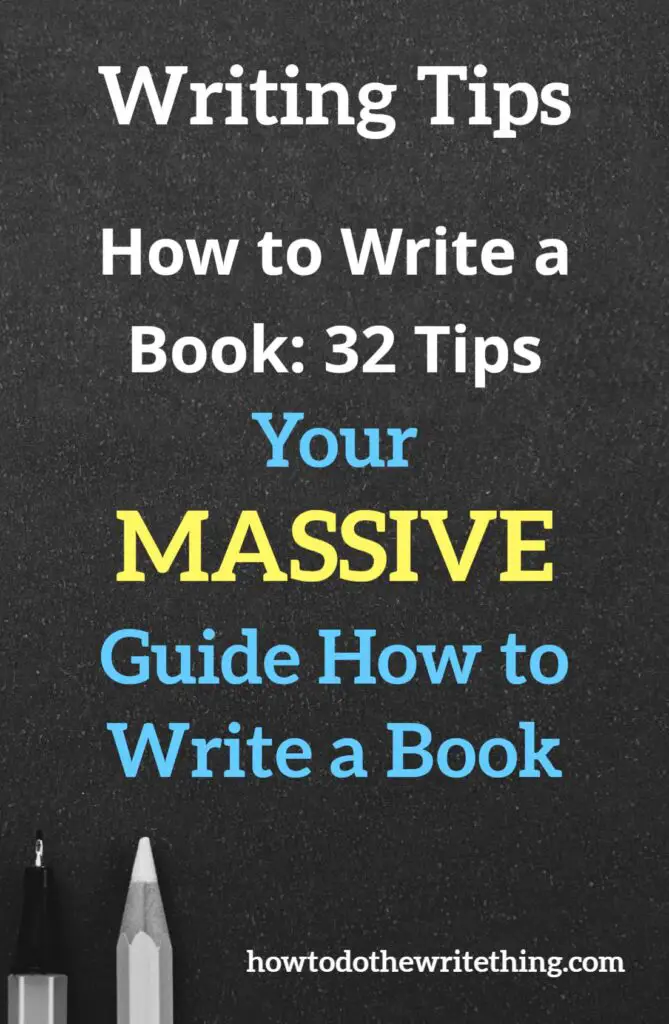
How to Write a Book: 32 Tips | Your MASSIVE Guide How to Write a Book
Need a Cheaper Plan? Try DreamHost.
If you enjoy How to Write a Book: 32 Tips | Your MASSIVE Guide How to Write a Book, storytelling, and writing in general, you might love owning a domain of your own where you can write about it? Ever want to own your own domain name (Yourname.com)?
Bluehost hosts your blog so that you can own your domain and make money blogging. Check them out only if you’re interested in making money blogging; otherwise, go for a free blog instead 🙂
Try Grammarly, The Free tool that should be in every writer’s toolbelt.
How to Write a Book: 32 Tips | Your MASSIVE Guide How to Write a Book
Check this out.
Different Goals You Can Set For Yourself
- You can set a deadline for the book to be finished
- Set a daily word goal
- Set a daily time goal
- Set a daily page goal
Stephen King sets a 6 page a day goal when he is working on a book.
- Set a daily time of day that you want to write
- Strive to write in the same place every time you write
- Set a total word goal for the book
- Set a total page goal for the book
- Set your daily goals in such a way that it lines up with your book deadline
- You can set a weekly goal. Make it align with what makes sense with your daily goal
How do you really start a book?
The tall and short of it is that you do have to force yourself to sit down and start writing.
Different Lengths For Different Types of Writing:
- 100,000+ words: very long novel / academic book / biography.
Read time: 8+ hours.
- 80,000-100,000 words: long nonfiction book / long novel.
Read time: 6-8 hours
- 60,000-80,000 words: long nonfiction book / standard-length novel.
Read time: 4-6 hours.
- 40,000-60,000 words: standard nonfiction book / novella.
Read time: 3-4 hours.
- 10,000-20,000 words: short eBook or manifesto.
Read time: 1-2 hours.
- At least 10,000 words: a pamphlet or business white paper.
Read time: 30-60 minutes.
Be Prepared to Get Feedback Early
Don’t make the error of writing too much of your book before you have a friend or family member read a bit and critique it.
If you’re in the right direction then it should go well but if you’re not sure to get a good advisor.
You can’t do this just anyone. It has to be with someone that is a good reader, is open minded, and isn’t afraid to hurt your feelings.
It needs to be someone that can tell you that it isn’t good at the beginning instead of finishing 100,000 words and being told the entire thing needs to change.
Have someone in mind that you can get quick feedback from along the way.
Different Kinds of Writers According to George R. R. Martin
George R. R. Martin says there are two different kinds of writers. One is more of an architect and the other is like a gardener.
The architect has everything mapped out and starts writing with a complete outline in place. The gardener starts from anywhere and kind of sees what grows out of it.
Knowing which one you are will help a lot with your daily writing process.
It will help you know where is best for you to start. Should you start making an outline to help you stay on track or should you just start writing and see where it goes?
Don’t Worry About the Title Before Starting
Titles are extremely important, but they aren’t worth not starting.
As you go just be looking for the title. You’ll find it.
Speed Up Your Writing Process
You can speed up your writing process by using a talk to text app or software.
If you feel that you have strong communication speech skills this might help you get down everything you’re thinking about in your story quickly.
Some people don’t like this method and prefer typing or writing, but it’s really up to you what you think will work best.
Expect Writer’s Block
If you set out to write anything, you can bet that no matter what a day will come (okay lots of days) where you can’t think of what to write next.
Here’s some ideas to try to beat writer’s block:
- Read about the genre or subject matter you are trying to write.
- Review your outline (if you made one).
- Try listening to music.
- Watch your favorite movie in your genre.
- Take a walk.
- Change your writing location.
- Get somewhere quiet to think.
- Read the news to get an idea for conflict you can add to the story.
- Reread what you wrote yesterday to see if it is naturally heading somewhere you didn’t see before.
- Exercise. Build up a sweat and get your heart pumping blood into your brain so you can think more clearly.
Technical Stuff
Know how you want the project to be formatted and format as you go. The experts say this will save you a big headache.
Give Your Story Depth
Blow your reader away with your setting, your plot, and your characters.
Make sure your story has good conflict and tension.
Depending on your genre you’re writing in can affect how you will get conflict and tension.
If you have a romance your conflict might be between 2 lovers.
If you are writing a sci-fi it might be that the universe is about to be lost in a gigantic time warp.
It doesn’t really matter what it is as long as it makes sense.
To go along with that, focus on your characters.
Make your characters interesting or your conflict won’t matter.
A good plot can’t always save a story with non interesting characters.
Need a Cheaper Plan? Try DreamHost.
If you enjoy How to Write a Book: 32 Tips | Your MASSIVE Guide How to Write a Book, storytelling, and writing in general, you might love owning a domain of your own where you can write about it? Ever want to own your own domain name (Yourname.com)?
Bluehost hosts your blog so that you can own your domain and make money blogging. Check them out only if you’re interested in making money blogging; otherwise, go for a free blog instead 🙂
Try Grammarly, The Free tool that should be in every writer’s toolbelt.
How to Write a Book: 32 Tips | Your MASSIVE Guide How to Write a Book
Check this out.
Don’t Get Bored Toward the End
A major problem that a lot of writers can run into is getting burnout.
It can be in the middle or end of your book, but the temptation comes to just rush to the finish line and call it quits.
Don’t do that. Finish the story. Spend the time it takes and finish it well.
Rely on your editing process to really take your time with the ending. Go over your outline and make sure that it really comes to a solid end with a solid resolution.
You could write a really interesting story with interesting characters and botch the ending and not be able to sell a second book.
If you have multiple ideas for your ending, the sage wisdom is to go with the ending that causes more emotions in your reader.
Help Yourself With Others
Try to find places where other writers are to help yourself keep moving forward. Find FB groups where writers help and inspire each other.
Watch talks from professional writers where they inspire you to write better and try different techniques and practices to better help and form your own.
Working in places like coffee shops where others are working and writing can be really helpful to keep yourself motivated.
It helps to look up and see others working around you and feel like you’re not the only one.
Let It Breath
Let’s say you finished your first draft! Great job! Now let it breath.
Let your book sit for a bit. Maybe a couple days, maybe a week or more. It doesn’t matter.
The point is you want to be able to step away from it a little so that you see it with a critical eye.
Sometimes when we are too close to our writing for too long it’s hard for us to see what’s working and what’s not working.
This is especially true in freelance writing, but the same is true with any writing. We take time away from it so that hopefully we can see it with fresh eyes again like a stranger would.
In your editing process here’s an simple list to follow to keep your sanity:
- Read out loud to hear any weird wording.
- Focus on just one chapter at a time at first to not get so overwhelmed.
- First, make sure the structure makes sense.
- Second, go through the chapter to adjust wording.
- Third, go through last to catch any more grammar mistakes.
Marketing Your Book
If you complete your book, Congratulations! But you’re not finished.
Now you have to let people know that it exists.
You have to know if you are going to self-publish or if you are going to start sending out cold emails to publishers to see if they’ll pick up your story.
Study Amazon Best Sellers.
Look on Amazon Best Sellers list and study how they market their books on Amazon.
Study their blurbs and how they get their first reviews.
Check out their covers for their books and try to get a good cover for your book.
Don’t cheap out on the cover. Don’t do a free cover. Figure out how to make it look as legitimate as possible for your targeted readers.
Get specific with your niche.
While you are studying other best sellers be sure to go to the books that are in your genre and see how they did their covers.
If You’re Self-Publishing With Amazon
If you are self-publishing with Amazon you need to know some key things:
- Get reviews. Amazon loves reviews the more you can get the more Amazon will recommend you to other shoppers.
- Get good at using the right keywords on your metadata.
- Run free giveaways to get more reviews to help with engagement.
- Ranking well in Amazon partly has to do with selling copies in a brief period of time.
- It’s recommended to try to do “Blitz promotions” where you set it up to go out all at the same time to get mass sales quickly in a short period. They then recommend waiting 90 days and doing it again. Hopefully this will help you leapfrog in ranks.
Create a quick pitch for your book.
A quick pitch is the perfect 5 to 10 second sentence you would tell someone about your book to get them interested.
It could be something like this, “Game of Thrones just met Ender’s Game. That’s what you’ll find in this book.”
Now that might not sound interesting to you, but somebody might get excited about that. It just needs to be short and punchy and gets people initially curious enough to download the sample.
Don’t forget about the Front and Back.
Make sure to take time to think about your forward, your introduction and your testimonials.
In your introduction try to include a short story that makes sense.
Get the best testimonials you can. Edit them as time goes on and you get some reviews.
In the back you could tease a cliffhanger that your audience doesn’t expect to get them thinking about a second book.
Include any images you want to.
How Do You Really Write a Book?
How to write a book?
You started reading this because you were looking for tips on how to write a book.
There are so many things to do or not do when it comes to the idea of writing stories, but if there is nothing else you get out of this post, get this:
How do YOU write a book?
You start it. Plain and simple.
And then you write it every day if you can, until it is finished.
If you can’t simply do that, then you can’t write a book.
At the end of the day starting your book really comes down to one simple thing and it is sometimes the hardest thing.
You must sit down and start putting words on a page.
You must stay motivated in the middle to keep going day in and day out.
And you must finish the book, down to every last word.
Now What?
Don’t stop. Write another book.
Use the momentum and the lessons you’ve learned from completing your first book to write your second and third and fourth and fifth.
You might be thinking, “I’m too tired to start another one right now.” That is okay. Even the professionals take breaks after finishing a book. The thing is if you enjoyed writing one you should start making another one soon.
How to Write a Book: 32 Tips | Your MASSIVE Guide How to Write a Book
Hope this helps!
Happy writing!
Other Popular Posts you might enjoy:
5 Tricks How to Hide Your Villain Right Before Their Eyes
10 Tips How to Write Villains that Play Mind Games with Their Victims
4 Tips How to Write your Character Hitting Rock Bottom
10 Toxic Bad Habits That’ll Crush Your Fictional Character’s Relationships
How to Write From Your Villain’s Mind.
How To Write 4 Scenes That Reveal Who Your Character Is Seamlessly
Psychopath: How to Write The Perfect Psychopath
8 Tips How to Write the Perfect Sociopath
Fictional Characters: 28+ Bad Habits to Introduce to Your Fictional Characters
List of 10 Weapons for Fictional Characters
List of 10 Bad Habits Fictional Characters Need Help Breaking
How to Write a Book: 32 Tips | Your MASSIVE Guide How to Write a Book
Resources:
How to Start a Blog in 11 Simple Easy Steps in 2020
How to Write a Book: 32 Tips | Your MASSIVE Guide How to Write a Book
Enjoying How to Write a Book: 32 Tips | Your MASSIVE Guide How to Write a Book? Take a moment and consider sharing this social-friendly image to say thanks and feel free to comment with your thoughts below! 🙂



How to Write a Book: 32 Tips | Your MASSIVE Guide How to Write a Book
Need a Cheaper Plan? Try DreamHost.
If you enjoy How to Write a Book: 32 Tips | Your MASSIVE Guide How to Write a Book, storytelling, and writing in general, you might love owning a domain of your own where you can write about it? Ever want to own your own domain name (Yourname.com)?
Bluehost hosts your blog so that you can own your domain and make money blogging. Check them out only if you’re interested in making money blogging; otherwise, go for a free blog instead 🙂
Try Grammarly, The Free tool that should be in every writer’s toolbelt.
How to Write a Book: 32 Tips | Your MASSIVE Guide How to Write a Book
Check this out.
How to Write a Book: 32 Tips | Your MASSIVE Guide How to Write a Book
Make sure your posts are readable. Use this readability score check
Want to check out a writer’s community to test your writing and get feedback?
Check out these FREE trial resources from Amazon for when you work from home (or are stuck at home 🙂 )
Free Prime Membership Trial:
Try Amazon Prime 30-Day Free Trial
Try Prime Discounted (Free Trial)
Make your Free Amazon Wedding Registry:
Create an Amazon Wedding Registry
Get Free Video Channels Trial with Prime:
Join Prime Video Channels Free Trial
Try Free Amazon Family Trial:
Join Amazon Family (30-day Free Trial)
Get Unlimited Music for Free (30-day free trial):
Free movies and TV shows trial:
Join Amazon Prime – Watch Thousands of Movies & TV Shows Anytime – Start Free Trial Now
Free Prime for students trial:
Free Baby Registry:
Shop Amazon – Create an Amazon Baby Registry
Free trial of Twitch Prime:
How to Write a Book: 32 Tips | Your MASSIVE Guide How to Write a Book
And for when you REALLY work at home:
Create Amazon Business Account
It is the Amazon you love, for work. Make workplace procurement easier with convenient delivery options, simplified purchasing workflows, multiple payment options, and a competitive marketplace with business-only pricing and quantity discounts. Anyone who makes purchases for work (eg. procurement specialists, office administration, IT departments, etc.) can create a FREE account for their business. Customer must be from a verified business in order to successfully create their Amazon Business account.
We hope you enjoyed: How to Write a Book: 32 Tips | Your MASSIVE Guide How to Write a Book!
Need a Cheaper Plan? Try DreamHost.
If you enjoy How to Write a Book: 32 Tips | Your MASSIVE Guide How to Write a Book, storytelling, and writing in general, you might love owning a domain of your own where you can write about it? Ever want to own your own domain name (Yourname.com)?
Bluehost hosts your blog so that you can own your domain and make money blogging. Check them out only if you’re interested in making money blogging; otherwise, go for a free blog instead 🙂
Try Grammarly, The Free tool that should be in every writer’s toolbelt.
How to Write a Book: 32 Tips | Your MASSIVE Guide How to Write a Book
Check this out.
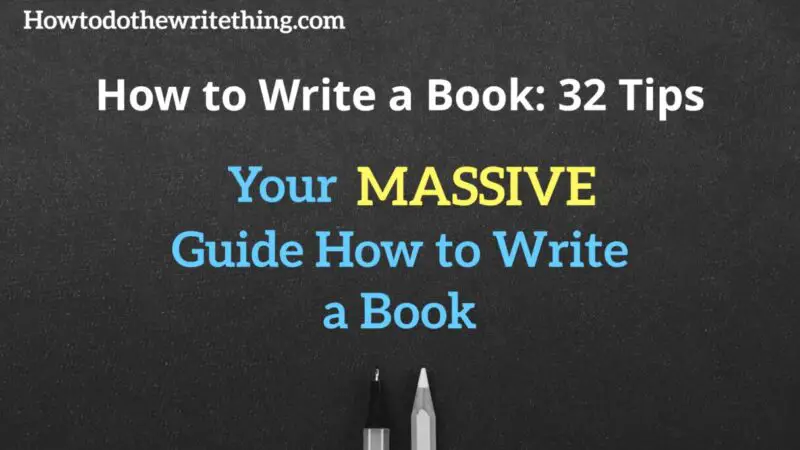
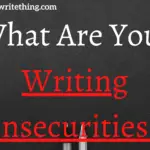
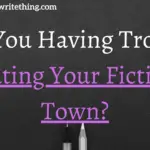

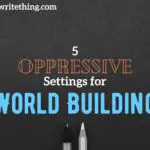
This article is truly the ultimate guide on writing a book. I really like the way in which you have explained the entire process of book writing in this article. There are many new things that I have learnt from this article. The best part about this article is that you have explained each step of the book printing process in great detail.
Thank you Daniel for your kind and thoughtful words. I hope you have good success with with acutrack and helping writers get their books out! Let me know if there is anything I can do to help.